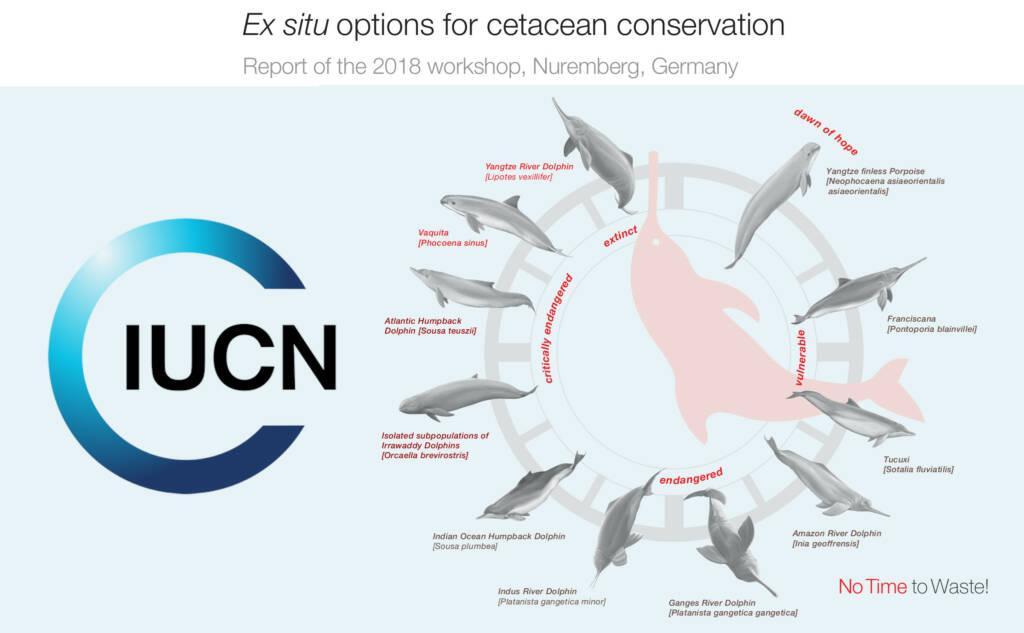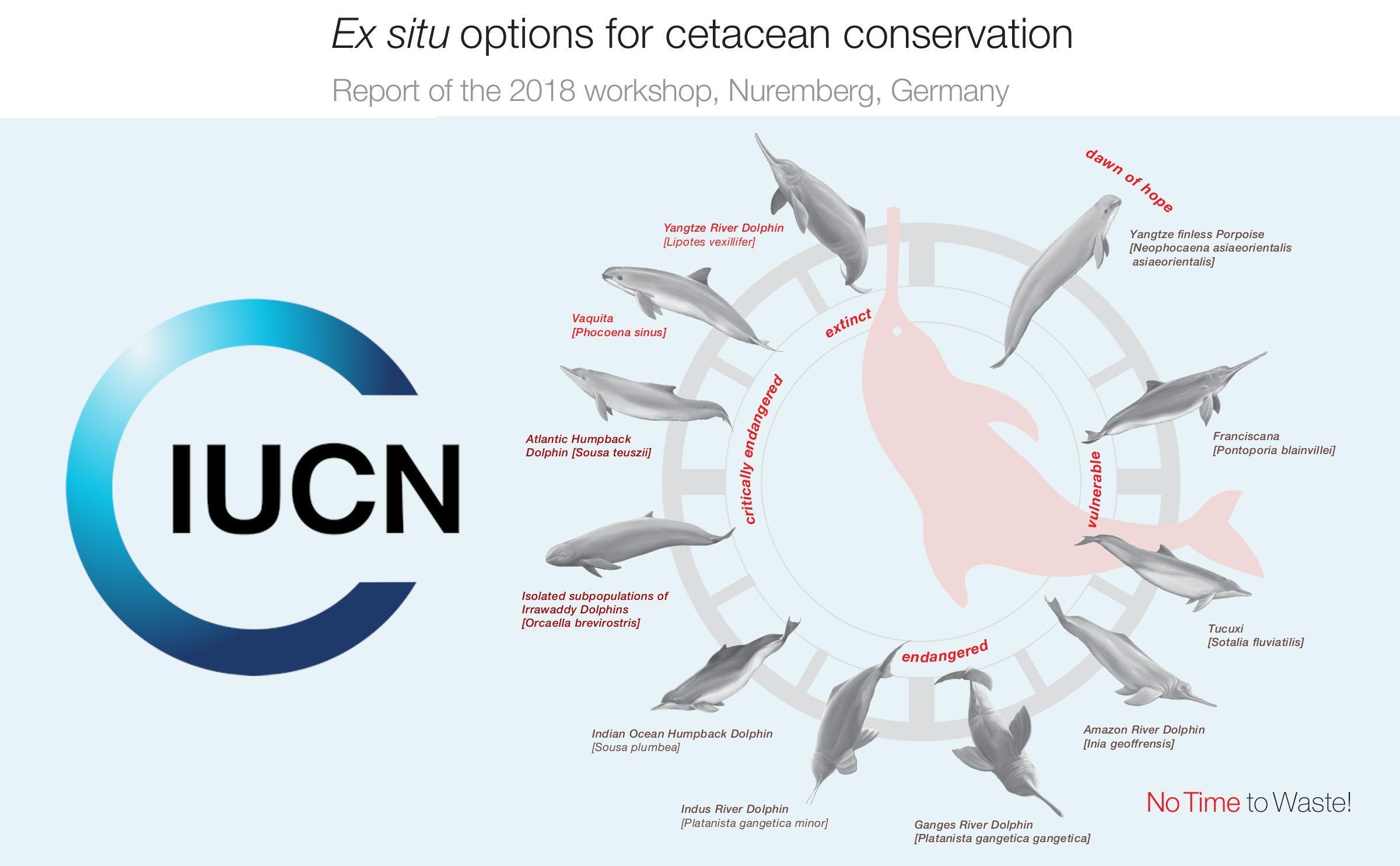
A new report published by the International Union for the Conservation of Nature (IUCN) at the beginning of October, highlights the urgent need to define and implement practical, scientifically supported and effective solutions to help cetacean populations that are rapidly declining, mainly as a consequence of by-catch among other factors, all of which are man-made. Amongst these solutions, the enormous importance of cetacean breeding programmes under human care to ensure the preservation of cetacean populations in the wild stands out as being of extraordinary importance.
Loro Parque welcomes these new statements by the leading experts on biodiversity conservation in the international arena and wishes to highlight the enormous contradiction in this respect with the recent initiative in France to ban the keeping of cetaceans in specialised zoological institutions in the country. An initiative that has hung in the air – probably for a few long months – and which has made us at Loro Parque want to celebrate the wisdom of the members of the French parliament.
It seems incomprehensible that, just when the world’s largest conservation organisation, the IUCN, recognises the importance and need for cetacean breeding under human care to save endangered dolphins, countries like France are trying to wipe out dolphinariums. Dolphinariums are where the experts are, where there are appropriate facilities and also the scientific knowledge necessary to be able to keep cetaceans under human care. By wanting to ban them, France has put itself in the uncomfortable position of going against the opinion of the leading experts in biodiversity conservation, and this as one of the most progressive and democratic countries in Europe.
It was already clear that the initiative to ban zoos and dolphinariums was not supported by science in terms of animal welfare, but now it is also shown that it goes against the needs of biodiversity conservation. And all this adds up to the fact that, according to the latest UN reports, more than 1,000,000 species on the planet are possibly in danger of extinction. This populist political decision driven by French anti-zoological pressure lobbies is therefore proving to be more misguided and, unfortunately, more counterproductive than ever.
Furthermore, Loro Parque expresses its full agreement with the conclusions of the report which underlines, among other things, that the extinction in 2006 of the Yangtze River
dolphin in China could have been avoided by establishing corresponding conservation programmes for this species under human care in time. Without these measures and given the threats such as habitat loss, by-catch and collisions with boats – all of which are man-made – the fate of the species was sealed and finally resulted in its complete extinction. Another example, which follows the same pattern and is explicitly mentioned in the IUCN report, is the situation of the Mexican vaquita (Phocoena sinus), a porpoise that occurs exclusively in the upper Gulf of California and will soon become extinct if illegal fishing does not cease, to which the vaquita falls victim indiscriminately when tangled in fishing nets. Several modest attempts by researchers to capture a few individuals with the aim of setting up a breeding programme under human care have not been successful, mainly because of pressure from anti-zoo organizations.
In this sense, Loro Parque fully supports this IUCN report and confirms, once again, that it will continue with its commitment to biodiversity conservation and the protection of natural habitats, thus fulfilling its role as a true Animal Embassy.


